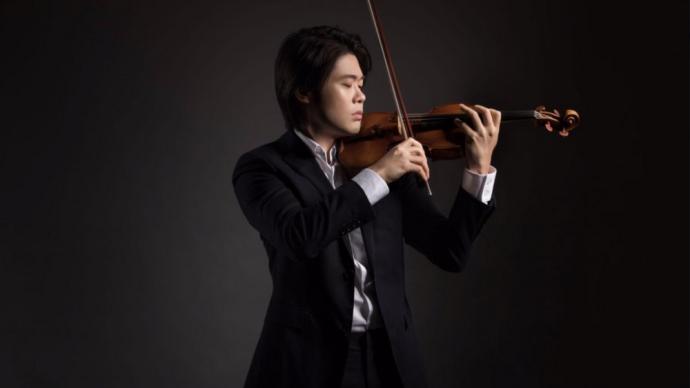
In the days when you press the pause button for the performance, besides music, what else can you add to the spirit? Of course there are no books.
On April 23, World Book Day, we invited six Shanghai musicians, including Huang Mengla, Song Siheng, Han Peng, Zhang Le, Liu Sha, and Jin Kai, to share their recent "private book list" at home. These books are full of personal interest, but also allow us to see the interesting side of them outside the stage.
Why study? Violinist Liu Sha gave a beautiful answer: "If you want to ask me why I like reading books, I want to meet more people and learn more interesting ideas. If you want to ask me what effect reading books have on music, then Go and ask the little fish what is the difference between swimming in the river and swimming in the sea. If you want to ask me what effect reading books has on the house, it is that life should not be too poor, and no matter what, add some spiritual meals! "
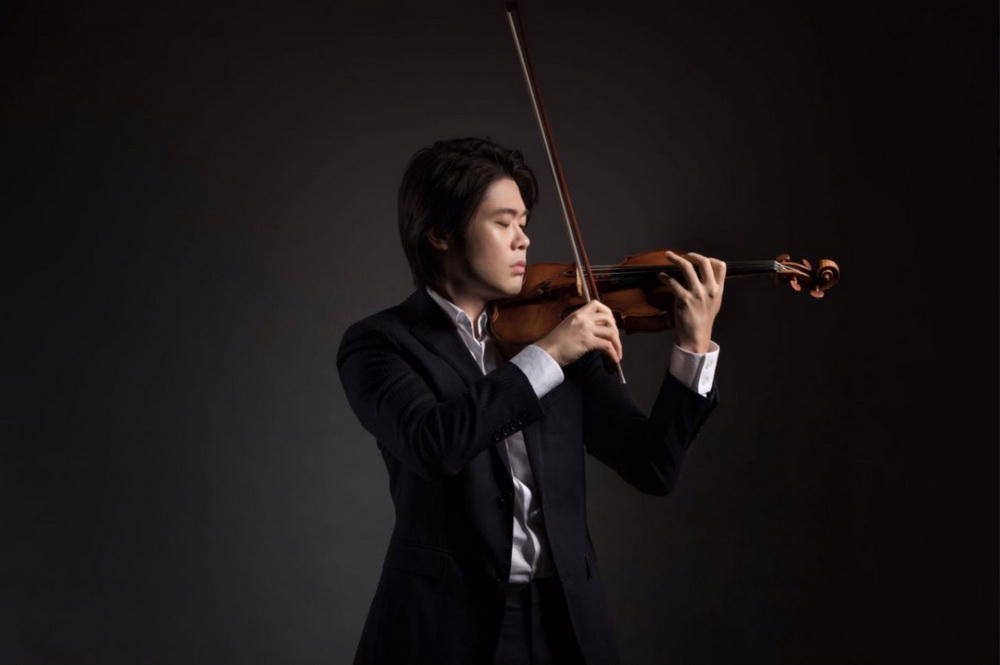 Huang Mengla (violinist, associate professor of Shanghai Conservatory of Music)
Huang Mengla (violinist, associate professor of Shanghai Conservatory of Music)
Recommend "Du Gongbu Collection". The epidemic is idle at home, and I watch all kinds of news. Since there are many things that cannot be resolved, it is better to turn around and read. When I was young, I loved Li Bai when I read poetry, and the poet Du Fu's works never took it to heart. This time I have time to make up for it. Sometimes realism is more magical than romanticism. Seeing the hearts and minds of people in troubled times in "Why is the official shouting, why is the woman crying?", the helplessness of reality in "The county officials are eager to ask for rent, where does the rent come from?" "Jun" to see the good memories of the past. In the 21st century, reading Du Fu's ill-fated life poems a thousand years ago is a unique experience.
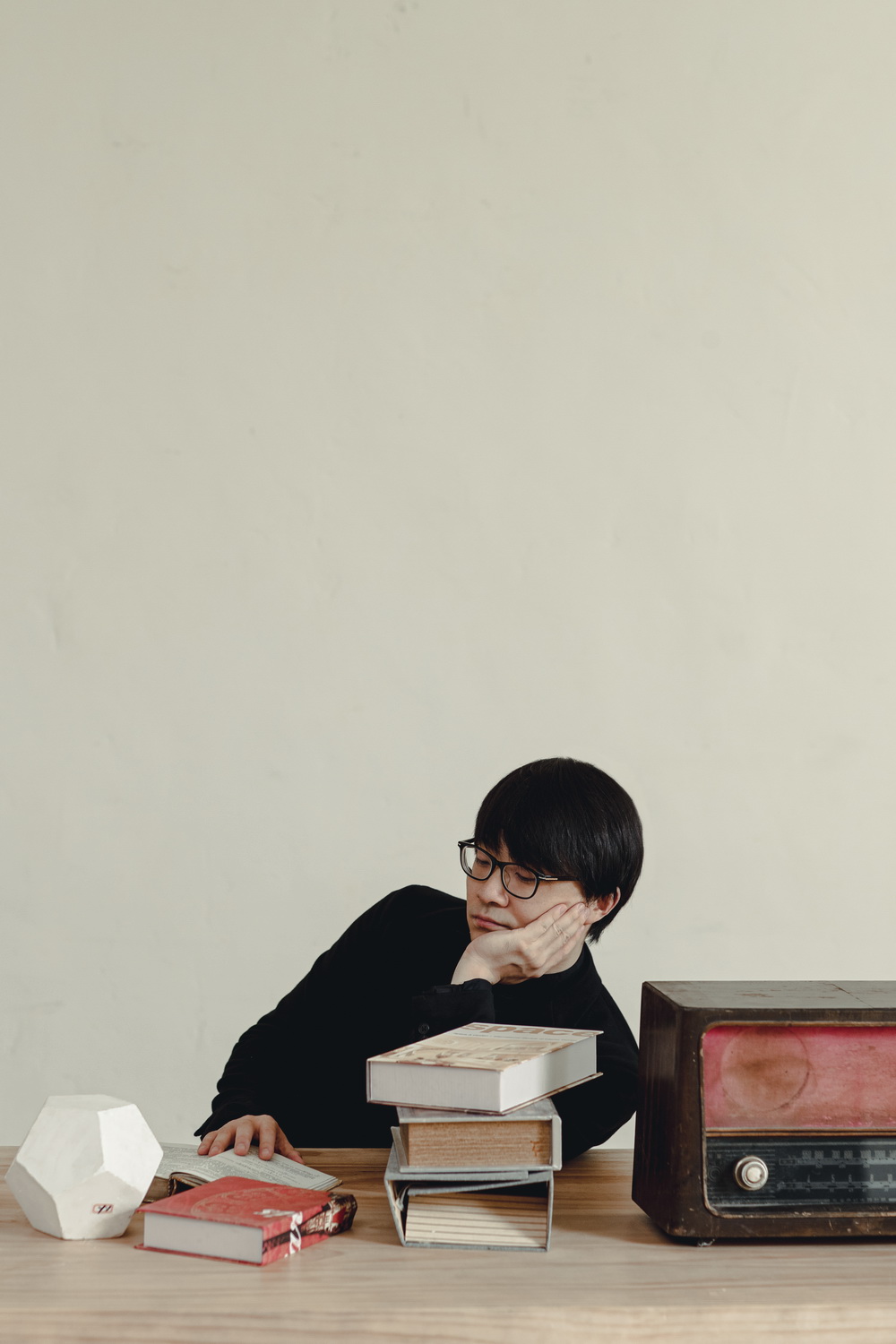 Song Siheng (pianist)
Song Siheng (pianist)
I believe that everyone, like me, has an unforgettable experience of home isolation right now. At such a moment, I recommend "The Story of the Romans" to everyone, which was written by Shiono Shiono, a famous Japanese historian.
This is a set of 15 books, and now we finally have such an opportunity to read long history books. Of course, don't be frightened by history books. This set of books is very vivid. Even if you are a person who is not very interested in history, you can still get interested in many small stories in it, such as on a coin. The head portraits, the small stories reflected in the letters between the great men... and other details, have constructed a grand Roman era and Roman people for us. I believe that reading such a book can also have a great reference for us today, what we have encountered today, and the history that happened.
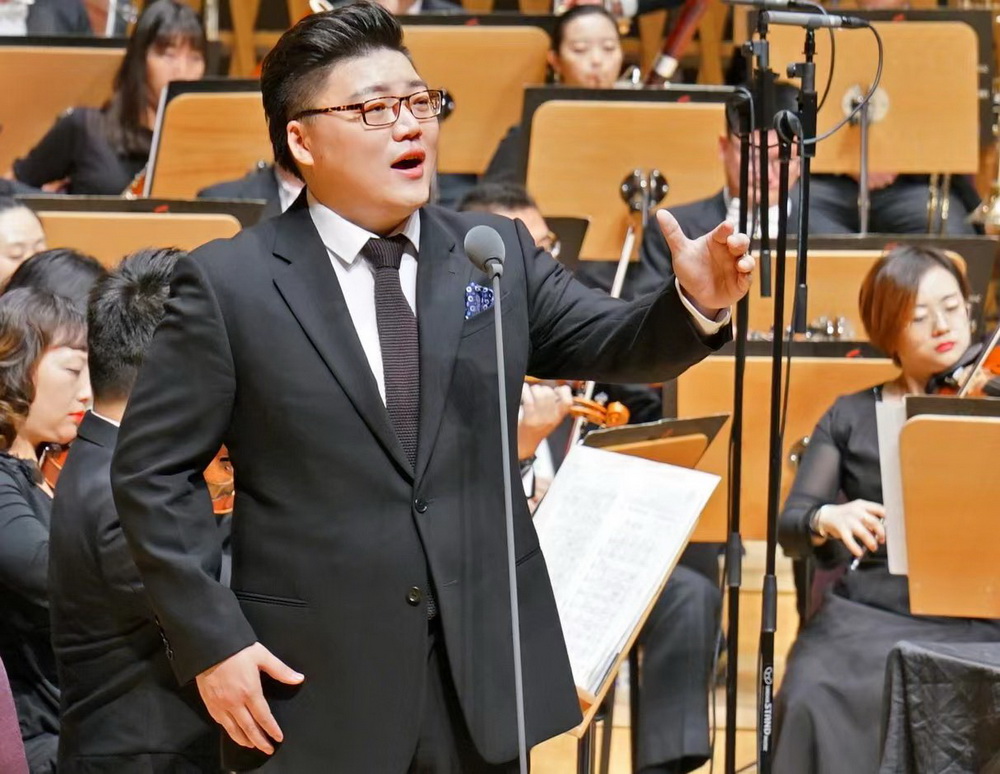 Han Peng (tenor, soloist of Shanghai Opera House)
Han Peng (tenor, soloist of Shanghai Opera House)
If you have a lot of free time lately, you might as well read a few books to calm yourself down.
I also share a few books I've been reading recently. One is "Late Blossoming People", which was written by Teacher Mo Yan after winning the Nobel Prize for Literature. I have a little relationship with Mr. Mo Yan. I performed an opera adapted from "Sandalwood Punishment" a few years ago, so I got to know Mr. Mo Yan and read a lot of his works, in order to understand the character and state of mind of his characters. . "Late Blossoming People" also has no time to read since I bought it. I hope to use the time at home to make up for the class.
Then I recommend "A Brief History of Humanity" and "A Brief History of the Future", which can be said to be popular online books. In the show crew, many friends recommended it to me. After being recommended by a friend two years ago, I immediately placed the order, because I have been performing and running all the time, and I really don't have time to watch it. These two books were bestsellers, loved by writers, scientists, and politicians alike. "A Brief History of Humanity" tells the development history of human beings from the first signs of life 100,000 years ago to today in the 21st century. It uses lowercase and uppercase to let human beings re-examine and understand themselves. I highly recommend that you read it when you have time.
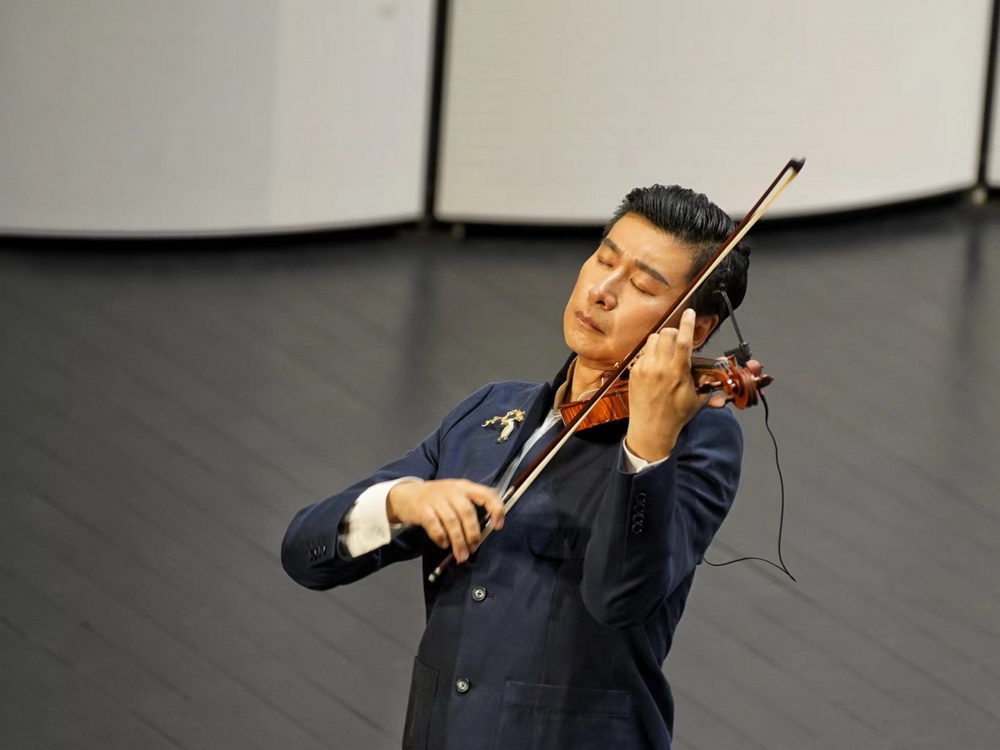 Zhang Le (violinist, principal of Shanghai Opera House Symphony Orchestra)
Zhang Le (violinist, principal of Shanghai Opera House Symphony Orchestra)
During the epidemic, I have a lot of time at home, and I have the opportunity to read. Traveling thousands of miles and reading thousands of books will help to understand music.
I like books like this very much, "Seven Dates with Zhengcangyuan" by Mr. Yang Zhishui, she is a senior researcher of the Palace Museum. This kind of book is very kind and warm, and can be directly put into a small bag or a piano box, and can be read at any time. She went to Shoso-in in Nara seven times to see the Great Exhibition of Datang, and these seven times happened to me to go too, once a year. What impressed me most was the five-stringed pipa of the Tang Dynasty. It was made of red sandalwood, and it was carved with snails and beads. It was very beautiful.
There is also "The Beauty of Old Times" by Masako Baizhou, a legendary female writer, she is a bit like Dong Qiao in Japan, and there are many Dong Qiao books by my bed. She is a Noh performer and an antique collector.
I read a lot of books on collections, including ancient jade, ancient beads, ancient porcelain, and ancient furniture. These are the only objects left in China that can be seen and touched. The beauty of the objects gives me a lot of inspiration.
I think we have three histories, one is the official history, the other is the unofficial history, and the other is the history of the artifacts left to us, which is very real. As Mr. Yang Zhishui said, every utensil has its own life, and it has passed on information to us after thousands of years, and it has great aesthetics. Like the jade of the Hongshan culture, the jade of the Han Dynasty, and the jade of the Song Dynasty, the characteristics are very obvious. Just like classical music, from the era of Bach, the era of Mozart, the era of Beethoven to the era of Brahms and Richard Strauss, the influence of the era cannot be skipped. Therefore, looking at the research of the utensils and collecting books also gave me a lot of musical inspiration.
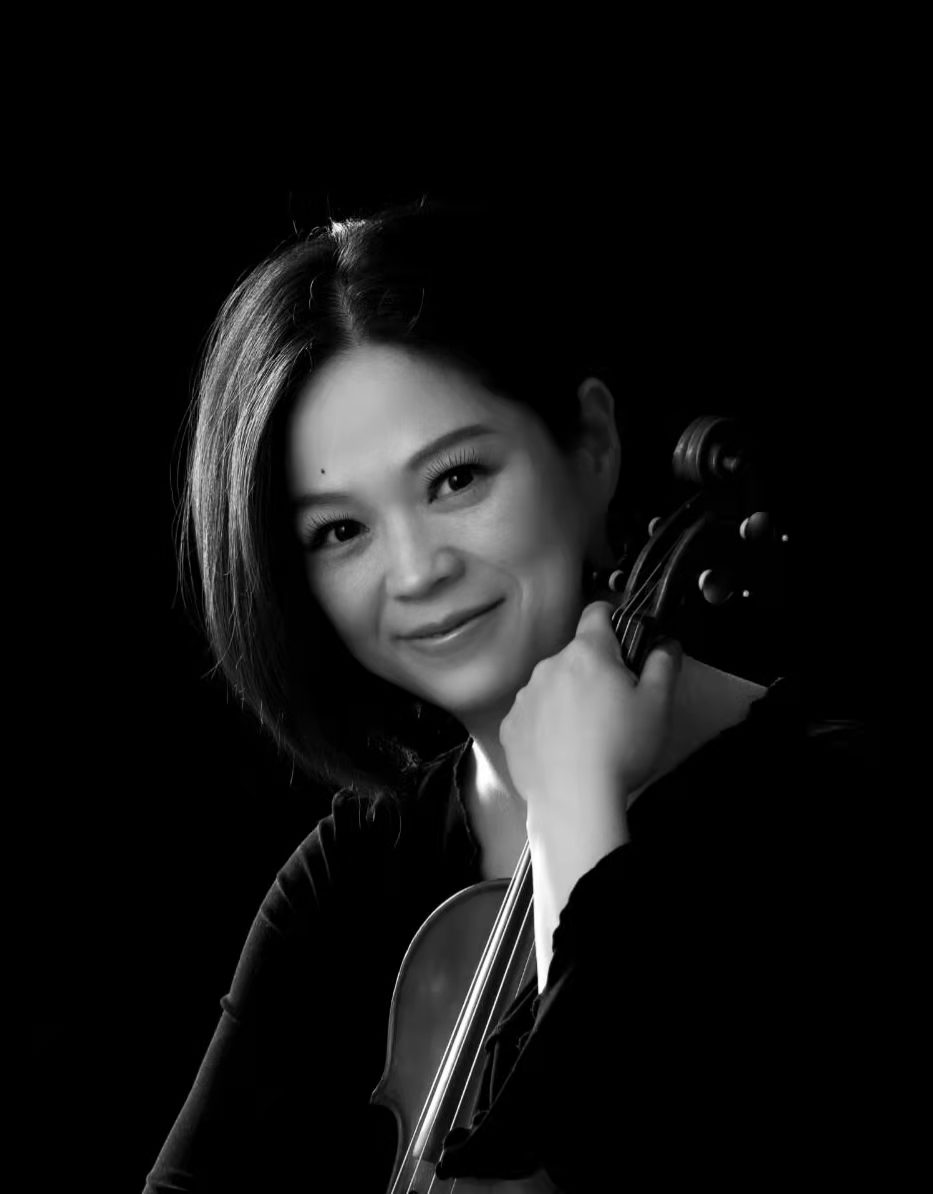 Liu Sha (violinist, member of the Shanghai Symphony Orchestra)
Liu Sha (violinist, member of the Shanghai Symphony Orchestra)
The sudden dilemma caused people to be in a hurry at first, and the mobile phone has become an essential tool for three meals a day. Slow hands and eyes can lead to a crisis at the dinner table. At the same time, it is necessary to take into account the study of "little monsters" at home. Not so much "epidemic prevention and anti-epidemic", it is the transformation of a perfect housewife. For someone like me, it is a luxury to have a moment of reading in between. And time has passed to this day, all kinds of "debugging" have never been interrupted. The library is a good place, and books have been kept at home since then.
Forgive me for not being able to share my book list with others because they are so personal. For example, the few books I read these days are all about the stories of men and women in the modern art circle in the United States (and also in Europe), their pursuits, their thinking and analysis, which are mapped to the thinking of the entire contemporary art.
The reading logic I can share is: from reading A to discover B, from B to know C, if you find that you are particularly fond of C, you will find everything about it. This is how my "book veins" opened.
If you ask me why I like reading books, I want to meet more people and learn more interesting ideas. If you want to ask me what effect reading books has on music, then ask the little fish what is the difference between swimming in a river and swimming in the sea. If you want to ask me what effect reading books can do to the house, it is that life should not be too poor, and no matter what, add some spiritual meals!
Recommend "The Open Space in the North", author Yang Liusong, an outdoor adventurer and a writer. He recorded his experience of pushing a bicycle through the no-man's land in Tibet for 77 days in the form of a diary. He not only led us to taste the magic of nature, how to challenge ourselves again and again, but also to the perception of life and nature. E.g:
1. Without persistence, there are only endless temptations in life.
2. It is difficult to walk in a straight line in a place that is too flat, and it is easier to get lost. Life also seems to be smooth sailing too, and I always feel that there is a trap waiting ahead.
3. Life is an aimless journey. The reason for being at a loss is that life and death limit the end and end of the journey... Therefore, some people give up their pursuit and indulge in mundane and passive travel. And some people continue to move forward with their dreams, no goals, no problems, just harvesting feelings along the way.
...
There is no dry preaching, it is all the experience of walking out of the foot!
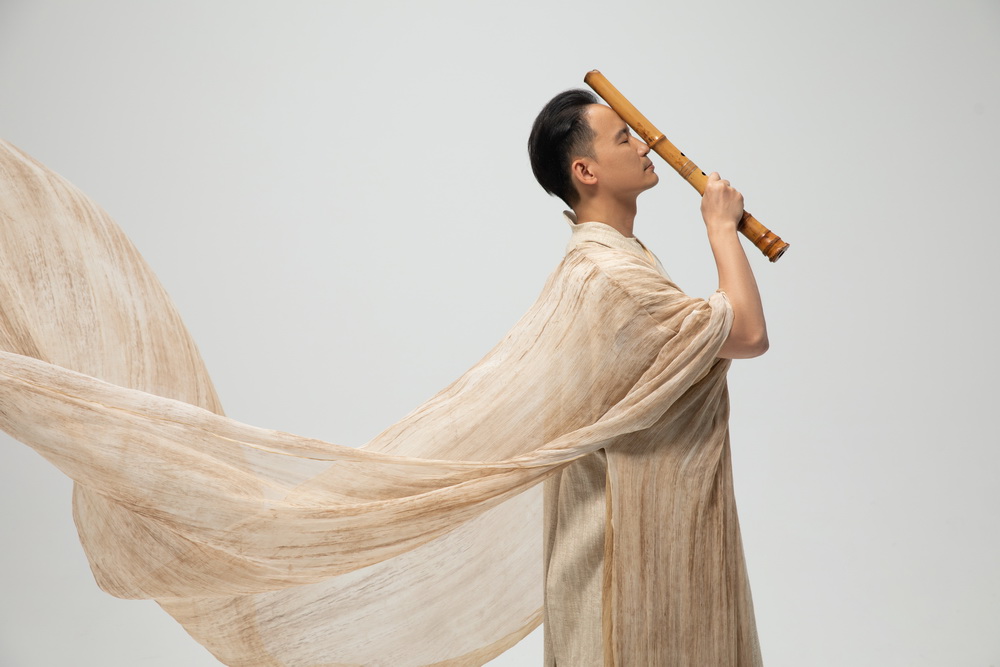 Jin Kai (Flute and Xiao player, principal of the bamboo flute section of the Shanghai Chinese Orchestra)
Jin Kai (Flute and Xiao player, principal of the bamboo flute section of the Shanghai Chinese Orchestra)
Mr. Ye Jiaying, people in the world respect her as "a taxi in a skirt" and "the last female gentleman in China". Mr. Ye himself has an unassuming, indifferent and aloof spirit. When he was young, he was in troubled times and wandered for half his life. In the face of the twists and turns of life, he still remained calm. He devoted his life to studying classical literature and spreading the beauty of Chinese poetry to the world.
I'm currently reading Mr. Ye's "Classic Poetry Lesson". Mr. Ye selected the most important poets and poetic works from The Book of Songs to the Southern Song Dynasty, divided them into thirty-six lessons, explained them comprehensively, and sorted out the context of classical poetry for readers. On poetry, Mr. absorbs the essence of ancient poetry criticism, and adds Western literary theory methods to distinguish and analyze it, forming a self-contained system. Her education and education have been exposed to the present and the past, connecting China and the West. When explaining, I added my own ups and downs in life and the life experience of wandering away from home. Mr.'s words are timeless, fresh, sincere and frank, and very affectionate. In the simple explanation, it can not only introduce young students into the door of poetry, but also let young students explore the beauty of poetry for the first time. It can also make classical poetry lovers feel the vastness of poetry and the subtlety of words. It will lead readers to discover the unrestrained and unrestrained atmosphere, or the profound artistic conception of gentleness and winding paths, and inspire readers to carefully savor the poet's intentions. It can be described as a taste of both refined and popular, suitable for all ages.
When Mr. Ye was talking about poetry, he put forward a famous concept called "the beauty of weak morality". She believes that there are many kinds of "virtue", including the virtue of the strong and the virtue of the weak. Mr. Ye said: "Weak virtue is not a weak person. Weak virtue is what you bear. If you insist, you must have your own conduct. You must complete yourself. This kind of character is weak virtue." This beauty is " The Beauty of Weak Virtue".
Mr. Ye has mentioned many times that Chinese classical poetry has the characteristic of moving and moving. She once said that the criterion for judging the quality of a poem lies in whether it has the power to inspire readers and the size, level, number, and breadth of this inspiration. The book quotes Liu Xie's "Wen Xin Diao Long Ming Poetry" which mentioned that "people have seven emotions, respond to things, feel things, and recite aspirations, is it natural". The master also said: "Spring breeze and spring birds, autumn wind and autumn cicadas, summer clouds and summer rain, winter months and cold months, the four seasons of the year in nature are one kind of species. The other kind is the joys and sorrows of the human world." Ups and downs, compared to the ancients thousands of years ago, also encountered such a situation. Either gain or loss, or good or bad, or cold or warm, or day and night. With the water moon in hand, the time and space of a thousand years meet in an instant, forever.
The infiltration of culture is tolerance, compassion, and subtle influence, and it is a profound view of the universe. The shape of civilization and the indoctrination of the world can still be seen in poetry, such as subtle, subtle, majestic, and unrestrained beauty, which makes people feel at ease. This is comprehension in the East, the perception of all things in the universe. People today can still find resonance in the hearts of the ancients thousands of years ago. Finally, I want to end with a poem by Mr. Ye that I like very much.
"Partridge Day"
Guanglejun knows nothing of the world, and Linglun blows bamboo to become an idiot. There is no peace in Baixue in Yingzhong, and blue whales outside the territory have dreams. Under the bright moon, the night tide is late, and the micro-wave is delivered. If the sea of relics can meet, it will be the same time.
On April 23, World Book Day, we invited six Shanghai musicians, including Huang Mengla, Song Siheng, Han Peng, Zhang Le, Liu Sha, and Jin Kai, to share their recent "private book list" at home. These books are full of personal interest, but also allow us to see the interesting side of them outside the stage.
Why study? Violinist Liu Sha gave a beautiful answer: "If you want to ask me why I like reading books, I want to meet more people and learn more interesting ideas. If you want to ask me what effect reading books have on music, then Go and ask the little fish what is the difference between swimming in the river and swimming in the sea. If you want to ask me what effect reading books has on the house, it is that life should not be too poor, and no matter what, add some spiritual meals! "
 Huang Mengla (violinist, associate professor of Shanghai Conservatory of Music)
Huang Mengla (violinist, associate professor of Shanghai Conservatory of Music)Recommend "Du Gongbu Collection". The epidemic is idle at home, and I watch all kinds of news. Since there are many things that cannot be resolved, it is better to turn around and read. When I was young, I loved Li Bai when I read poetry, and the poet Du Fu's works never took it to heart. This time I have time to make up for it. Sometimes realism is more magical than romanticism. Seeing the hearts and minds of people in troubled times in "Why is the official shouting, why is the woman crying?", the helplessness of reality in "The county officials are eager to ask for rent, where does the rent come from?" "Jun" to see the good memories of the past. In the 21st century, reading Du Fu's ill-fated life poems a thousand years ago is a unique experience.
 Song Siheng (pianist)
Song Siheng (pianist)I believe that everyone, like me, has an unforgettable experience of home isolation right now. At such a moment, I recommend "The Story of the Romans" to everyone, which was written by Shiono Shiono, a famous Japanese historian.
This is a set of 15 books, and now we finally have such an opportunity to read long history books. Of course, don't be frightened by history books. This set of books is very vivid. Even if you are a person who is not very interested in history, you can still get interested in many small stories in it, such as on a coin. The head portraits, the small stories reflected in the letters between the great men... and other details, have constructed a grand Roman era and Roman people for us. I believe that reading such a book can also have a great reference for us today, what we have encountered today, and the history that happened.
 Han Peng (tenor, soloist of Shanghai Opera House)
Han Peng (tenor, soloist of Shanghai Opera House)If you have a lot of free time lately, you might as well read a few books to calm yourself down.
I also share a few books I've been reading recently. One is "Late Blossoming People", which was written by Teacher Mo Yan after winning the Nobel Prize for Literature. I have a little relationship with Mr. Mo Yan. I performed an opera adapted from "Sandalwood Punishment" a few years ago, so I got to know Mr. Mo Yan and read a lot of his works, in order to understand the character and state of mind of his characters. . "Late Blossoming People" also has no time to read since I bought it. I hope to use the time at home to make up for the class.
Then I recommend "A Brief History of Humanity" and "A Brief History of the Future", which can be said to be popular online books. In the show crew, many friends recommended it to me. After being recommended by a friend two years ago, I immediately placed the order, because I have been performing and running all the time, and I really don't have time to watch it. These two books were bestsellers, loved by writers, scientists, and politicians alike. "A Brief History of Humanity" tells the development history of human beings from the first signs of life 100,000 years ago to today in the 21st century. It uses lowercase and uppercase to let human beings re-examine and understand themselves. I highly recommend that you read it when you have time.
 Zhang Le (violinist, principal of Shanghai Opera House Symphony Orchestra)
Zhang Le (violinist, principal of Shanghai Opera House Symphony Orchestra)During the epidemic, I have a lot of time at home, and I have the opportunity to read. Traveling thousands of miles and reading thousands of books will help to understand music.
I like books like this very much, "Seven Dates with Zhengcangyuan" by Mr. Yang Zhishui, she is a senior researcher of the Palace Museum. This kind of book is very kind and warm, and can be directly put into a small bag or a piano box, and can be read at any time. She went to Shoso-in in Nara seven times to see the Great Exhibition of Datang, and these seven times happened to me to go too, once a year. What impressed me most was the five-stringed pipa of the Tang Dynasty. It was made of red sandalwood, and it was carved with snails and beads. It was very beautiful.
There is also "The Beauty of Old Times" by Masako Baizhou, a legendary female writer, she is a bit like Dong Qiao in Japan, and there are many Dong Qiao books by my bed. She is a Noh performer and an antique collector.
I read a lot of books on collections, including ancient jade, ancient beads, ancient porcelain, and ancient furniture. These are the only objects left in China that can be seen and touched. The beauty of the objects gives me a lot of inspiration.
I think we have three histories, one is the official history, the other is the unofficial history, and the other is the history of the artifacts left to us, which is very real. As Mr. Yang Zhishui said, every utensil has its own life, and it has passed on information to us after thousands of years, and it has great aesthetics. Like the jade of the Hongshan culture, the jade of the Han Dynasty, and the jade of the Song Dynasty, the characteristics are very obvious. Just like classical music, from the era of Bach, the era of Mozart, the era of Beethoven to the era of Brahms and Richard Strauss, the influence of the era cannot be skipped. Therefore, looking at the research of the utensils and collecting books also gave me a lot of musical inspiration.
 Liu Sha (violinist, member of the Shanghai Symphony Orchestra)
Liu Sha (violinist, member of the Shanghai Symphony Orchestra)The sudden dilemma caused people to be in a hurry at first, and the mobile phone has become an essential tool for three meals a day. Slow hands and eyes can lead to a crisis at the dinner table. At the same time, it is necessary to take into account the study of "little monsters" at home. Not so much "epidemic prevention and anti-epidemic", it is the transformation of a perfect housewife. For someone like me, it is a luxury to have a moment of reading in between. And time has passed to this day, all kinds of "debugging" have never been interrupted. The library is a good place, and books have been kept at home since then.
Forgive me for not being able to share my book list with others because they are so personal. For example, the few books I read these days are all about the stories of men and women in the modern art circle in the United States (and also in Europe), their pursuits, their thinking and analysis, which are mapped to the thinking of the entire contemporary art.
The reading logic I can share is: from reading A to discover B, from B to know C, if you find that you are particularly fond of C, you will find everything about it. This is how my "book veins" opened.
If you ask me why I like reading books, I want to meet more people and learn more interesting ideas. If you want to ask me what effect reading books has on music, then ask the little fish what is the difference between swimming in a river and swimming in the sea. If you want to ask me what effect reading books can do to the house, it is that life should not be too poor, and no matter what, add some spiritual meals!
Recommend "The Open Space in the North", author Yang Liusong, an outdoor adventurer and a writer. He recorded his experience of pushing a bicycle through the no-man's land in Tibet for 77 days in the form of a diary. He not only led us to taste the magic of nature, how to challenge ourselves again and again, but also to the perception of life and nature. E.g:
1. Without persistence, there are only endless temptations in life.
2. It is difficult to walk in a straight line in a place that is too flat, and it is easier to get lost. Life also seems to be smooth sailing too, and I always feel that there is a trap waiting ahead.
3. Life is an aimless journey. The reason for being at a loss is that life and death limit the end and end of the journey... Therefore, some people give up their pursuit and indulge in mundane and passive travel. And some people continue to move forward with their dreams, no goals, no problems, just harvesting feelings along the way.
...
There is no dry preaching, it is all the experience of walking out of the foot!
 Jin Kai (Flute and Xiao player, principal of the bamboo flute section of the Shanghai Chinese Orchestra)
Jin Kai (Flute and Xiao player, principal of the bamboo flute section of the Shanghai Chinese Orchestra)Mr. Ye Jiaying, people in the world respect her as "a taxi in a skirt" and "the last female gentleman in China". Mr. Ye himself has an unassuming, indifferent and aloof spirit. When he was young, he was in troubled times and wandered for half his life. In the face of the twists and turns of life, he still remained calm. He devoted his life to studying classical literature and spreading the beauty of Chinese poetry to the world.
I'm currently reading Mr. Ye's "Classic Poetry Lesson". Mr. Ye selected the most important poets and poetic works from The Book of Songs to the Southern Song Dynasty, divided them into thirty-six lessons, explained them comprehensively, and sorted out the context of classical poetry for readers. On poetry, Mr. absorbs the essence of ancient poetry criticism, and adds Western literary theory methods to distinguish and analyze it, forming a self-contained system. Her education and education have been exposed to the present and the past, connecting China and the West. When explaining, I added my own ups and downs in life and the life experience of wandering away from home. Mr.'s words are timeless, fresh, sincere and frank, and very affectionate. In the simple explanation, it can not only introduce young students into the door of poetry, but also let young students explore the beauty of poetry for the first time. It can also make classical poetry lovers feel the vastness of poetry and the subtlety of words. It will lead readers to discover the unrestrained and unrestrained atmosphere, or the profound artistic conception of gentleness and winding paths, and inspire readers to carefully savor the poet's intentions. It can be described as a taste of both refined and popular, suitable for all ages.
When Mr. Ye was talking about poetry, he put forward a famous concept called "the beauty of weak morality". She believes that there are many kinds of "virtue", including the virtue of the strong and the virtue of the weak. Mr. Ye said: "Weak virtue is not a weak person. Weak virtue is what you bear. If you insist, you must have your own conduct. You must complete yourself. This kind of character is weak virtue." This beauty is " The Beauty of Weak Virtue".
Mr. Ye has mentioned many times that Chinese classical poetry has the characteristic of moving and moving. She once said that the criterion for judging the quality of a poem lies in whether it has the power to inspire readers and the size, level, number, and breadth of this inspiration. The book quotes Liu Xie's "Wen Xin Diao Long Ming Poetry" which mentioned that "people have seven emotions, respond to things, feel things, and recite aspirations, is it natural". The master also said: "Spring breeze and spring birds, autumn wind and autumn cicadas, summer clouds and summer rain, winter months and cold months, the four seasons of the year in nature are one kind of species. The other kind is the joys and sorrows of the human world." Ups and downs, compared to the ancients thousands of years ago, also encountered such a situation. Either gain or loss, or good or bad, or cold or warm, or day and night. With the water moon in hand, the time and space of a thousand years meet in an instant, forever.
The infiltration of culture is tolerance, compassion, and subtle influence, and it is a profound view of the universe. The shape of civilization and the indoctrination of the world can still be seen in poetry, such as subtle, subtle, majestic, and unrestrained beauty, which makes people feel at ease. This is comprehension in the East, the perception of all things in the universe. People today can still find resonance in the hearts of the ancients thousands of years ago. Finally, I want to end with a poem by Mr. Ye that I like very much.
"Partridge Day"
Guanglejun knows nothing of the world, and Linglun blows bamboo to become an idiot. There is no peace in Baixue in Yingzhong, and blue whales outside the territory have dreams. Under the bright moon, the night tide is late, and the micro-wave is delivered. If the sea of relics can meet, it will be the same time.
Related Posts